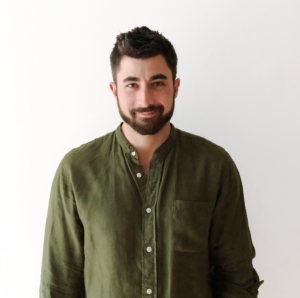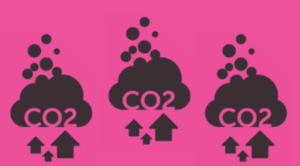Welcome to Mob76 and our readers, Eric. You’ve recently set up Rival, a ‘new type of agency’, why is it different?
The first thing I’ll say is Rival is new. And we are taking a very product-like approach to how we’re building our offering. Meaning, it’s going to iterate and evolve as we go. So why I think it’s different now might be different six months from now and will definitely be different twelve months from now.
One of the biggest fundamental differences is I’m coming from a product business building a services offering, so we’re going to do it a little bit differently with Rival. But in terms of our actual ‘points of differentiation’, we have three: what we do, how we do it and why we do it.
Rival is a marketing consultancy – that’s what we do. There are plenty of those out there, but what we focus on is bringing challenger marketing strategies and capabilities (aka marketing innovation) into incumbent organizations. We believe you don’t need to be a startup to be a challenger – we’re trying to help any business, think, act and grow like a challenger.
Secondly, how Rival does things is different. We’re a management consulting firm for CMOs, not an advertising agency. And our mantra for how we work is ‘we try to work ourselves out of a job as quickly as possible’. We are about teaching people to fish, not fishing for them (or trying to charge them as many days as possible for the fishing trip!).
I think that’s different than how a lot of consulting firms think and act. And lastly our vision and why we do this is different. We’re hoping to set a new standard for what it means to be a modern consulting firm on three fronts: life/work balance, diversity & inclusion, and social impact. You can see more about what this means to us on our website, but we’re passionate about doing good, not just doing well, even if it is on a small scale at this point.
You’ve worked in FinTech with 11:FS as CMO, how was that experience?
The team at 11:FS have built something really special and I feel lucky to have been a part of it as CMO and then CCO running the consulting business. We were able to build one of the stronger, more differentiated brands in financial services, and had a great time doing it!
There’s a lot that I learned from my time there and I’m still good friends with the team. I actually think there’s a lot of overlap between what we’re doing on the marketing innovation front and what they’re doing on the product innovation front, so hopefully our paths will cross more in the future.
As MD at Vayner Media, what was it like working with Gary Vaynerchuk?
It was amazing working for Gary. I tell people I got ten MBAs’ worth of education in the time I spent working with him. I joined VaynerMedia when it was 15 people, so you can imagine the learning experience and opportunity that comes with that. I spent seven years working for him overall, including opening the office in London, and was lucky enough to report to him directly for that entire time.
It’s no surprise to me at all that he’s built the empire he has. He’s a truly incredible CEO, entrepreneur and human being. And of course, he still wants to buy the New York Jets! It’s amazing to think that he might actually pulll it off. It would certainly be a fantastic thing for the Jets, ha!
Can you imagine a better PR brand and marketing play for them, not to mention the impact he could have on viewership and the fan base? To me, it’d be a no brainer…but somebody’s got to be willing to sell at the right time! I actually put out a post a while back on the 20 biggest lessons I learned working for Gary – that’s the best place to go to hear some stories and key takeaways . The biggest thing you can’t see from the outside, but you feel every day being on the inside is how much he genuinely cares about the people around him.
As an American living in London for some time, how do you think the city is doing at the moment?
I’ve been here for six years. I came here pre-Trump, pre-Brexit, and obviously pre-Covid. So I’ve seen a lot of change in London – it’s home for me now. There’s been a lot thrown at London the last few years, but cities like this always figure it out.
There are ups and downs, but they’re not match for the energy and entrepreneurialism here. It’s really special to see, feel, and be a small part of. So many amazing, special, hard-working people solving so many problems from so many angles. I’ll always bet on London having a bigger and brighter future ahead of it.
Any thoughts on the NFT craze? Is it relevant to Rival?
The NFT craze is relevant to everybody. There is a ton of hype right now from these early applications of it – so many’get rich quick’ activations being done. It’s a bubble for sure, but a lot of people will make a lot of money in the bubble, and then a lot of people will lose a lot of money when it pops. It’s similar to the dot-com bubble of the late19 90s.
And much like that bubble, the ‘stocks’ that were hot might pop, but the underlying trend and technology is here to stay and will be foundational for the next 10 plus years of social and business interaction. So if Rival is about marketing innovation, which really means leveraging the realities of today to drive growth of your business, NFTs are definitely going to be part of that marketing reality – maybe just a bit more in the future than the present.
I think a lot of the marketing activity that’s happening now is kind of marketing for the sake of marketing. Many brands are doing it just to get the headlines and to get the awards. I really wonder how much of it is actually driving business results. But I do think that marketers in the world of 2022 should spend time really understanding what NFTs are, so that when the real applications of them for mainstream brands come up, you’re not behind the curve. Sorry to plug our own stuff again, but I did just interview Gary on his perspective on this and what he’s building with his own NFT project and agency!
Any predictions for marketing in 2022?
One of the things that Gary used to say is that it’s much more important to react faster to the present than to predict the future. I always loved that advice and I like to steal that answer when somebody asks me for my predictions. It really is the right way to think about things…I understand why people ask the prediction question, but I think it’s the wrong question.
I think the focus should be more about what can you do to take more opportunity from the way things are right now? That said, I’ll give you a some of the things that I’m really interested in for 2022.
1) NFTs: some of that hype bursting and people starting to figure out the practical applications of it to drive business growth
2) The role of artificial intelligence in the creative process. It’s probably more a 2025 thing than a 2022 thing although it is happening in places, but I think there are a lot of businesses and pieces of the marketing machine that can be augmented by artificial intelligence. That evolution will be really interesting to watch happen
3) We’re still at the early stages of figuring out what this trend towards a post-cookie, first-party data-led world is going to look like. And a lot of businesses are going to have to figure that out in a real way next year
The first thing I’ll say is Rival is new. And we are taking a very product-like approach to how we’re building our offering. Meaning, it’s going to iterate and evolve as we go. So why I think it’s different now might be different six months from now and will definitely be different twelve months from now.
One of the biggest fundamental differences is I’m coming from a product business building a services offering, so we’re going to do it a little bit differently. But in terms of our actual ‘points of differentiation’, we have three: what we do, how we do it, and why we do it.
We are a marketing consultancy – that’s what we do. There are plenty of those out there, but what we focus on is bringing challenger marketing strategies and capabilities (aka marketing innovation) into incumbent organizations. We believe you don’t need to be a start-up to be a challenger – we’re trying to help any business, think, act and grow like a challenger. Secondly, how we do things is different. We’re a management consulting firm for CMOs, not an advertising agency.
And our mantra for how we work is ‘we try to work ourselves out of a job as quickly as possible’. We are about teaching people to fish, not fishing for them (or trying to charge them as many days as possible for the fishing trip!). I think that’s different than how a lot of consulting firms think and act. And lastly our vision and why we do this is different.
Rival will set a new standard for what it means to be a modern consulting firm on three fronts: life/work balance, diversity and inclusion, and social impact. You can see more about what this means to us on our website, but we’re passionate about doing good, not just doing well, even if it is on a small scale at this point.




